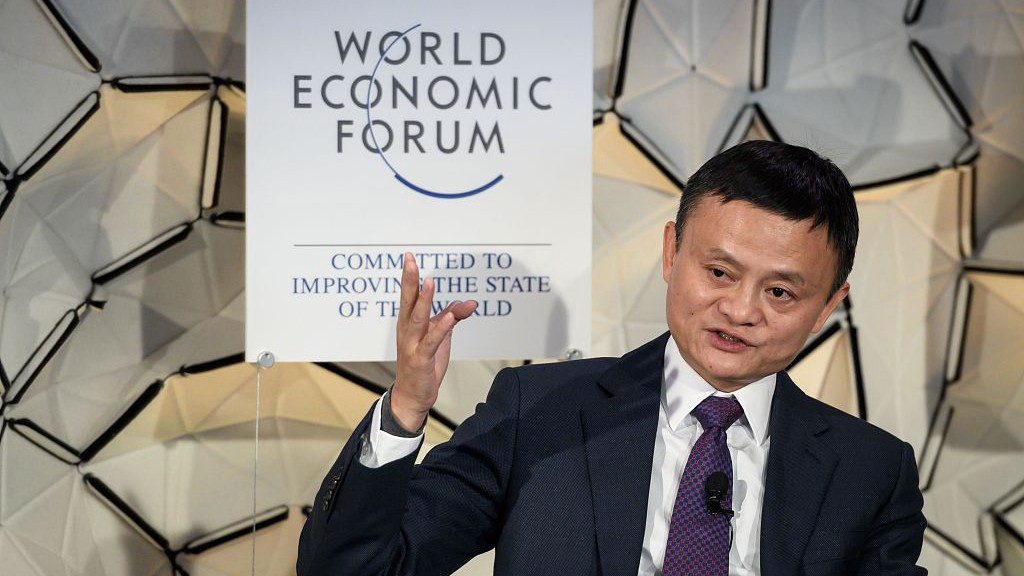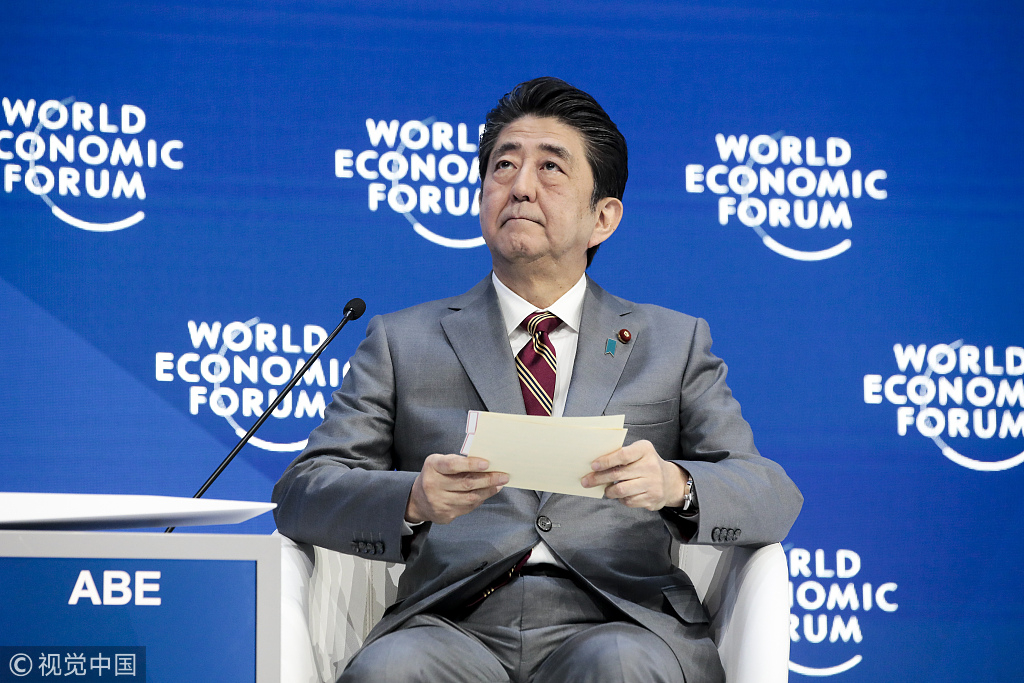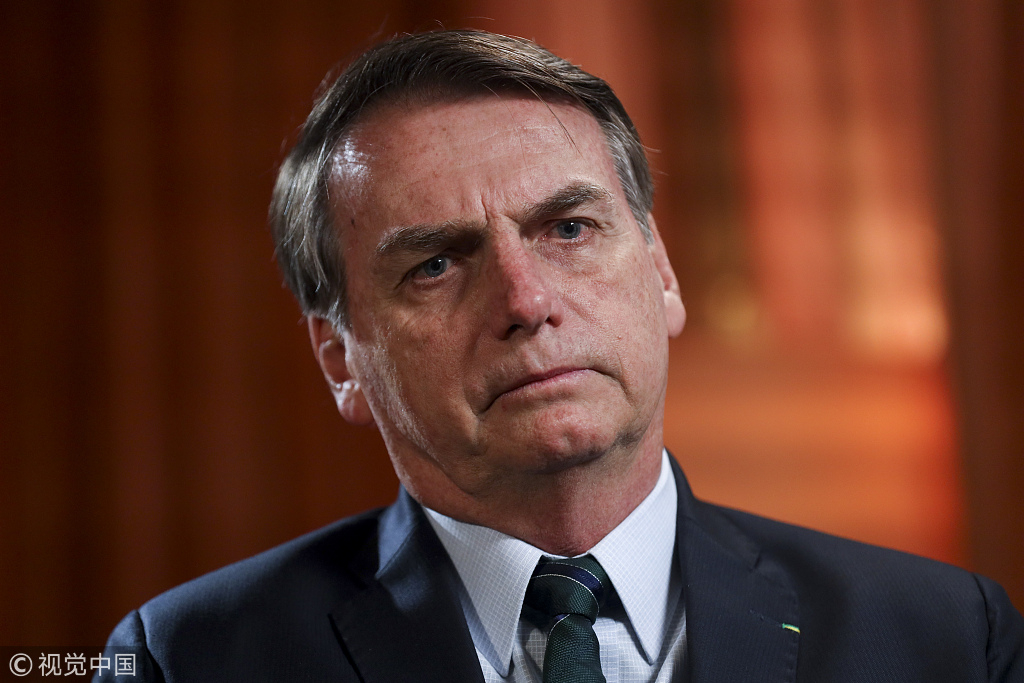
Opinion
09:38, 24-Jan-2019
Globalization 4.0: What are the key challenges facing us?
Hisham AbuBakr Metwally

Editor's note: Hisham AbuBakr Metwally is the First Economist Researcher at the Central Department for Export & Import Policy under the Egyptian Ministry of Foreign Trade and Industry. The article reflects the author's view and not necessarily those of CGTN.
Davos 2019 is taking place from January 22 to 25, the theme of which is "Globalization 4.0: Shaping a New Architecture in the Age of the Fourth Industrial Revolution".
With more than 3,000 participants invited, half of them in the private sector and the other half politicians, academic researchers and government officials, the forum is a place to discuss global concerns and future plans, and also a good opportunity for making good deals.
The Director-General of the World Economic Forum (WEF) said: "We are all stakeholders of our global future."
A lot of initiatives will be discussed, including shaping the future of advanced manufacturing and production, consumption, digital economy and society, economic progress, education, so on and so forth.

Japanese Prime Minister Shinzo Abe prepares to deliver a special address on the second day of the World Economic Forum (WEF) in Davos, Switzerland, January 23, 2019. /VCG Photo
Japanese Prime Minister Shinzo Abe prepares to deliver a special address on the second day of the World Economic Forum (WEF) in Davos, Switzerland, January 23, 2019. /VCG Photo
Globalization in its fourth phase is an opportunity to achieve sustainable growth and the formation of production chains to encompass all countries of the world. However, in the meanwhile, there are also some challenges facing us in this new era.
International norms, such as “Inclusive Globalization”, “Free Trade”, Multilateralism,” are threatened
Under the Trump administration's “America First” policy, we have witnessed the U.S. withdrawal from the Trans-Pacific Partnership Agreement (TPP), NAFTA, Iran Nuclear Deal, the Paris climate agreement, and from the United Nations Educational, Scientific and Cultural Organization (UNESCO). The list goes on.
This shows that the U.S. has no respect for laws or treaties and the world is subject to what America wants only. The current U.S. policy focuses on short-term gains and ignores the magnitude of the long-term damage.
Worsening business environment is causing concern
The trade war between America and China has turned dramatic with aggressive decisions, Britain's departure from the European Union is still vague, and the agreement between America, Mexico and Canada still needs legal recognition from the institutions of the three countries.
This situation threatened the existing investments in these countries and halted the flow of new investments until the picture is clear, which will have significant effects on the economies of these countries and on the high rate of growth in addition to the unemployment rates and other indicators that will experience great pressure.
Banks are also reluctant to give loans in such circumstances and therefore the cost of lending is higher, which affects investments directly, According to PwC's latest survey, there is a decline in CEO confidence in growth prospect.

Brazilian President Jair Bolsonaro during a Bloomberg Television interview in Davos, Switzerland, January 23, 2019. /VCG Photo
Brazilian President Jair Bolsonaro during a Bloomberg Television interview in Davos, Switzerland, January 23, 2019. /VCG Photo
Fourth industrial revolution should take into account those who missed the train of globalization, especially African countries
Not all countries have benefited equally from the globalization and previous industrial revolutions.
The European continent, North America and some Asian countries have been able to ride the industrial revolution train, while many African, Latin American and some Asian countries failed to benefit as much.
It is no longer acceptable that the fourth industrial revolution should continue with the same old approach as before. The world has witnessed the spread of poverty and civil wars, which has led to waves of mass exodus from the poor countries to the developed countries.
The world has not yet been able to unite to develop a unified road map to meet the challenges and risks facing the world such as climate change, migratory waves, conflicts, civil wars, etc yet.
It's a great opportunity to forge public opinion that brings politicians together with business and civil society organizations to create a unified strategy that can confront the policies of segregation, unilateralism, and protectionism.
I don't think the Davos conference is enough to meet all the challenges, but it may be a start on the right path for the experts to develop the plans and perceptions that leaders can use and interact positively with.
(Cover photo: Alibaba Group co-founder and executive chairman Jack Ma gestures during a pannel session at the WEF annual meeting in Davos, Switzerland, January 23, 2019. /VCG Photo)
(If you want to contribute and have specific expertise, please contact us at opinions@cgtn.com)

SITEMAP
Copyright © 2018 CGTN. Beijing ICP prepared NO.16065310-3
Copyright © 2018 CGTN. Beijing ICP prepared NO.16065310-3